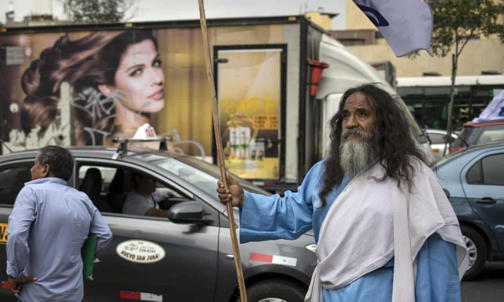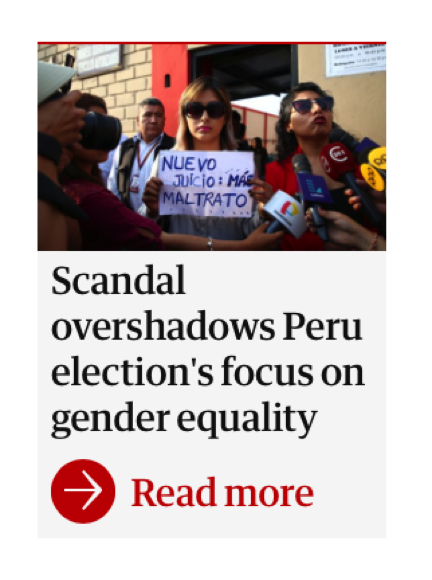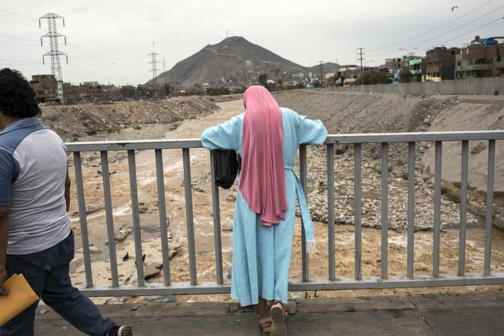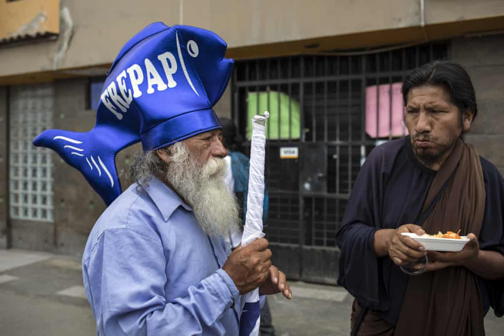
Peru: why a fundamentalist sect became an unexpected winner in elections
January 30, 2020 - Original article: The Guardian
Political party of Los Israelitas wins second largest share in new congress, and prompts concern over their fundamentalist views
Dan Collyns in Lima
In a country that takes pride in its colourful folklore, Los Israelitas – a religious sect whose members dress in flowing biblical robes – were regarded as just one more strand in Peru’s cultural tapestry.
That was until their political party became an unexpected winner in parliamentary elections on Sunday.
 The political party of the Israelites of the New Universal Pact won the second largest share of the quick count vote, 8.9%, giving them one of largest blocs of lawmakers in Peru’s fragmented new congress – and prompting concerns over their fundamentalist views.
The political party of the Israelites of the New Universal Pact won the second largest share of the quick count vote, 8.9%, giving them one of largest blocs of lawmakers in Peru’s fragmented new congress – and prompting concerns over their fundamentalist views.
The Agricultural People’s Front of Peru, known by its acronym Frepap, was previously looked upon as a group of eccentric religious fanatics with marginal electoral prospects. But in Sunday’s election, they outperformed traditional parties and newer centrist or leftist options.
The official count, which is still being tallied, looks set to broadly confirm the initial results.
The party has been “doing politics for decades – but below the radar,” said María Eugenia Ulfe, an anthropology professor at Lima’s Catholic University.
In stark contrast to other campaigners, the Israelites dress like cast-members in a nativity play: the men with long hair and beards and the women in headscarves and robes. The messianic sect behind the party was founded in 1968 by Ezequiel Ataucusi, a self-styled spiritual leader who called himself the “Christ of the west”.
(below) with long hair and beards and the women in headscarves and robes. Photograph: Rodrigo Abd/AP

Ataucusi mixed the Old Testament with a reverence for the Inca empire and taught his disciples that Peru was the promised land. When he died in 2000, his followers placed his body in a glass casket and waited in vain for his resurrection.
“I was as surprised as everyone else [with the result],” says Ulfe. “We know very little about who they are and how they will act,” she said, voicing concern about their strict adherence to traditional gender roles.
One of the group’s new lawmakers, Wilmer Cayllahua offered some insight into their political stance in a radio interview on Monday, in which he rejected alliances or deals with any other political grouping.
Cayllahua said his party would seek to scrap lawmakers’ parliamentary immunity – a popular measure backed in a 2018 referendum.
But following a campaign which put LGBTQ+ rights and gender equality on the agenda, Cayllahua aligned with other conservative groups in opposing Peru’s current sex education curriculum and said LGBTQ+ people had “evil embedded in their hearts and their blood”.
(below) Peruvians weary of corruption and politicians ‘think a person with a religious vocation is not going to rob you or be corrupt’. Photograph: Rodrigo Abd/AP

Criticising same-sex unions, Cayllahua said the party would embark on a “moralisation” of politics, promote agriculture and seek to preside over the parliamentary education committee.
The party ran an effective “mouth-to-mouth, door-to-door” campaign, said Adriana Urrutia, director of the school of political science at Lima’s Antonio Ruiz de Montoya University.
Campaigning in rural and marginal areas, Frepap “achieved much more than other parties which used social media and got TV coverage”, she said.
“This vote expressed popular discontent. It punished traditional parties with strong links to corruption and little regional presence,” she added.
Peruvians weary of corruption and politicians “think a person with a religious vocation is not going to rob you or be corrupt”, said Ulfe.